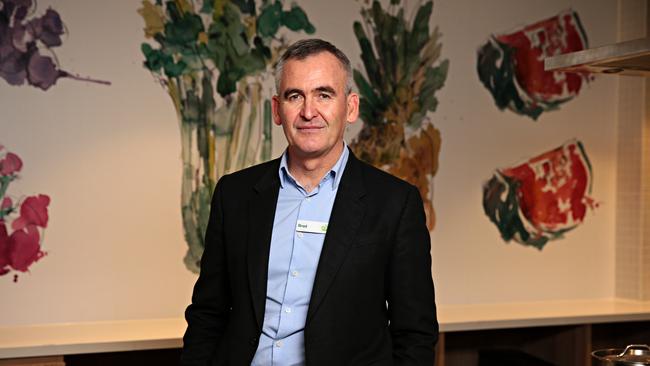
And overall, with gaps, the universities have been skilled in the way they have mixed overseas and local students — but now bad management at the top has allowed racial hatred to invade campuses in many universities.
When combined with the HECS fees burden, there is a clear danger we will see a significant fall in enrolments from both local and overseas students.
If this happens many universities will require a strong dose of corporate remedial medicine, starting with the removal of people at the top.
We are entering into a world which will require good universities, so if the right management replacements can be found, and the obvious changes made, the sector has a good future.
Many top university managers did not recognise serious problems emerging some years ago. And now many have lost control of their campuses and lecture rooms and turned themselves into organisations being controlled by protest agendas based on hatred of other a students, many of whom happen to be Jewish.
In the business world, if this sort of appalling management is not rectified — and consequently the enterprise can’t pay its debts — then administrators are brought in and usually the company is carved up and liquidated.
At this stage those remedies are not required for universities, but like corporates if bad management is not rectified we will see university failures.
In the corporate world when there are serious management mistakes which still leave the enterprise solvent with a good base business, a well-tested formula usually works.
The chief executive and close associates are removed and, soon after, the chair finds it desirable to stand down. There is a board cleansing and new blood is brought in.
Qantas is a perfect example. With its new CEO and chairman and a board cleansing the company has now admitted the ACCC was right and Qantas was wrong. The company had indeed been selling airline tickets which didn’t exist. Well done Gina Cass-Gottlieb.
Selling fictitious tickets was a sign of deeper problems in the same way the universities’ generation of racial hatred is an indicator of deeper university issues.

Qantas passengers were compensated. Although it was obvious to the nation the company had done bad things, this sort of decision couldn’t be made by the former administration and board.
Woolworths blew its status as a national icon when its directors and top management decided to follow their personal views rather than staying out of referendum politics, especially as, like Qantas, the personal views of the directors and top management were different to Woolworths’ customers.
The Coalition asked for a Woolworths boycott and the CEO stood down. In the first three months of 2024, Coles took market share from Woolworths.
In the university industry, Australian management had tended to follow the US, so its not surprising that universities in both countries are currently suffering similar fates.
Traditionally, in both Australia and the US, the universities were havens where there was freedom of speech and genuine respect (not necessarily agreement) for other people’s ideas.
But, in the last decade increasingly universities in both countries have been making it difficult for people with ‘politically incorrect’ views to speak them on campus.

For example, people with different environmental views — instead of being challenged in open debate — were banned from expressing their views on some campuses.
When the issue was not addressed by top university managers it made it much easier for co-ordinated extremist attacks to make the universities centres of anti-semitism and racial hatred.
Large universities have become dependent on foreign students, but the market is now endangered by bad campus management.
Regaining control of our campuses will not be easy and will certainly require different people as chief executives (vice chancellors) and a thorough cleansing of the boards. In other words, if there is an enrolment slump, corporate remedies must be applied to regain the trust of potential students and customers.
But, in my view, there has also been wider problems in the operations of many universities. They have not been looking after their local “customers” — employers — and too many students leave university completely underprepared for the sort of environment they are going to face in corporate and government employment.
For example, our shortage of teachers was partly caused because universities did not work with the sector to make sure those who did teaching courses came out with the knowledge of how to teach.
Without such knowledge, many left the profession in frustration and discouraged others from taking the courses.
Traditionally, arts courses have been a wonderful training ground to help students think laterally. This is still the case in some universities, but in many studying arts concentrates on politically correct views.
Looking forward to the world of artificial intelligence, we are going to need to train people how to use this new mechanism, and this will increase the importance of carefully prepared university curriculums in all sectors.
This won’t happen until confidence is restored in the management of universities, which may take a significant fall in enrolments to come to fruition.
I hate to say it, but the sooner the better.






Education, and especially university education, has been a linchpin industry for our two largest cities Melbourne and Sydney.